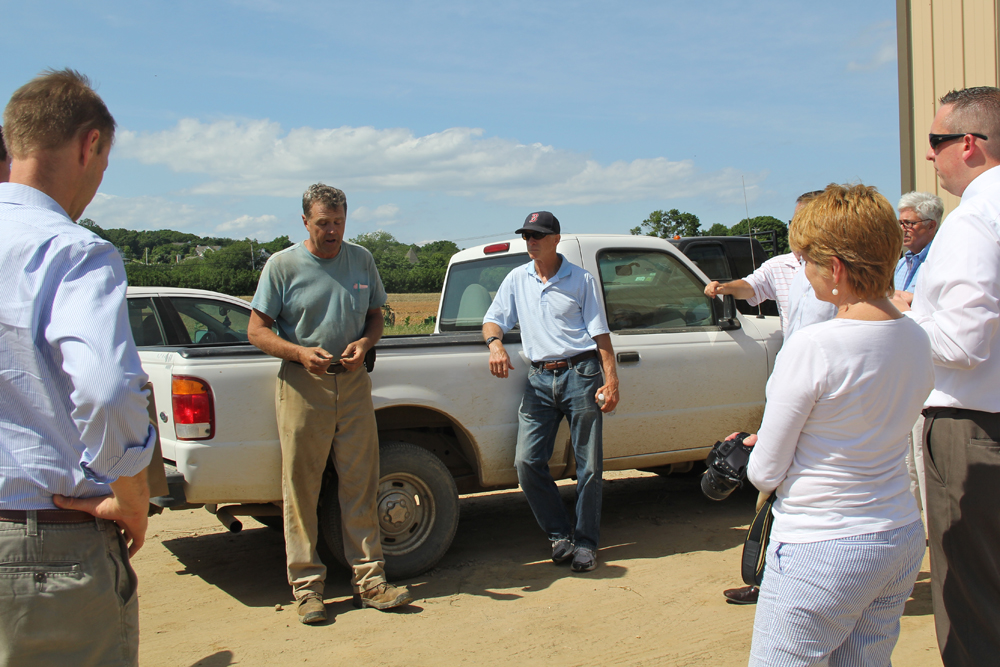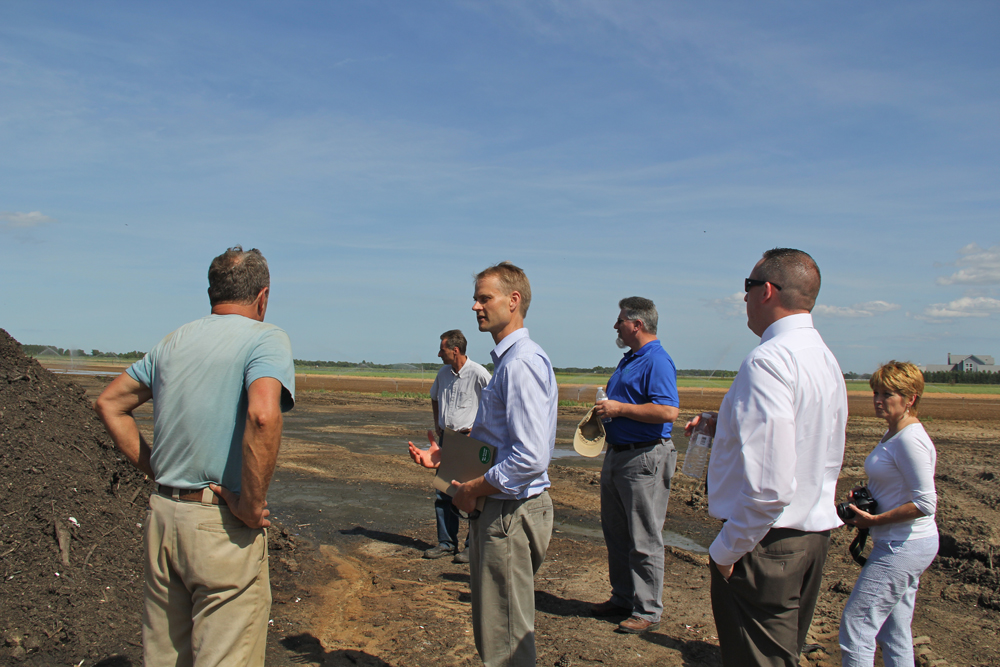Riverhead farmer Phil Schmitt details conservation efforts at his farm

Phil Schmitt of Schmitt Family Farms in Riverhead welcomed farming support representatives from the New York City watershed region last week to share some of the conservation practices being used every day on the Roanoke Avenue farm.
Representatives from Cornell Cooperative Extension of Suffolk County and the American Farmland Trust, which helps the state’s ag industry with funding opportunities, joined the tour Wednesday as Mr. Schmitt explained both practices being used on the farm, and some of the current federal policy issues involving food safety and water quality.
“I started using slow-release fertilizer about four years ago,” Mr. Schmitt said, adding that “it takes some time for the land to transition over.”
Pointing to a field of corn, he noted that one of the results is a thick undergrowth between each stalk. In the past, those rows would be manicured, he explained, but said allowing the understory to stay helps maintain the nutritional value of the soil.
Composting was the next topic of discussion, as tour participants stood next to 12-foot high piles of compost made from leaves and arbor materials abundant on other areas of the farm.
Mr. Schmitt said composting has become a major part of his fertilizing efforts, however he is only able to keep so much on the farm because of the time and space commitments needed for the process to take place.
Mr. Schmitt utilizes crop rotation to let the land rest, and plants cover crops like rye to help improve the soil.
He said before any particular measure is taken on his land, the first step is soil testing to understand what nutritional value is already there, and what really needs to be added.
“It’s not that we want to use [inputs],” he said. “We use it when we have to.”









